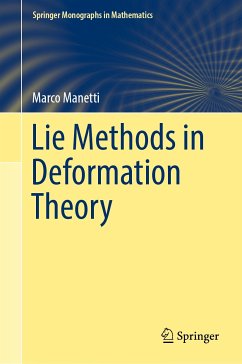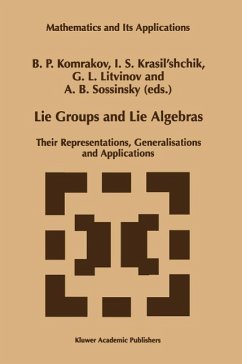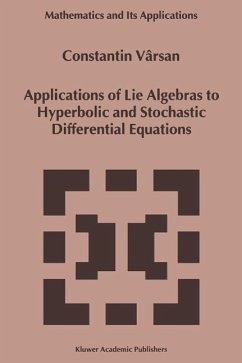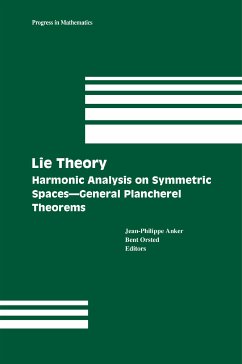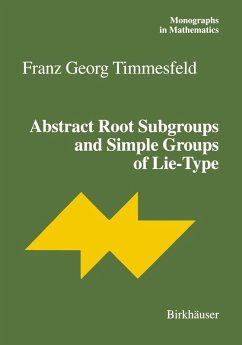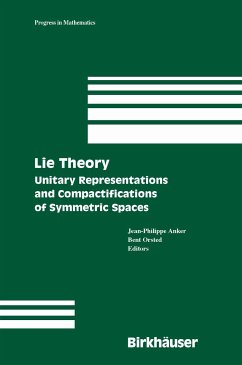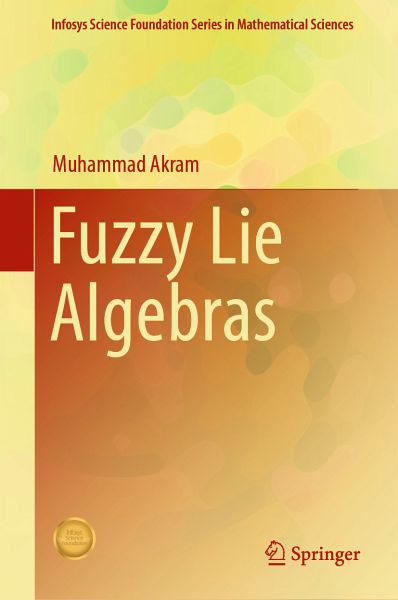
Fuzzy Lie Algebras (eBook, PDF)
Versandkostenfrei!
Sofort per Download lieferbar
88,95 €
inkl. MwSt.
Weitere Ausgaben:

PAYBACK Punkte
44 °P sammeln!
This book explores certain structures of fuzzy Lie algebras, fuzzy Lie superalgebras and fuzzy n-Lie algebras. In addition, it applies various concepts to Lie algebras and Lie superalgebras, including type-1 fuzzy sets, interval-valued fuzzy sets, intuitionistic fuzzy sets, interval-valued intuitionistic fuzzy sets, vague sets and bipolar fuzzy sets. The book offers a valuable resource for students and researchers in mathematics, especially those interested in fuzzy Lie algebraic structures, as well as for other scientists. Divided into 10 chapters, the book begins with a concise review of fuz...
This book explores certain structures of fuzzy Lie algebras, fuzzy Lie superalgebras and fuzzy n-Lie algebras. In addition, it applies various concepts to Lie algebras and Lie superalgebras, including type-1 fuzzy sets, interval-valued fuzzy sets, intuitionistic fuzzy sets, interval-valued intuitionistic fuzzy sets, vague sets and bipolar fuzzy sets. The book offers a valuable resource for students and researchers in mathematics, especially those interested in fuzzy Lie algebraic structures, as well as for other scientists.
Divided into 10 chapters, the book begins with a concise review of fuzzy set theory, Lie algebras and Lie superalgebras. In turn, Chap. 2 discusses several properties of concepts like interval-valued fuzzy Lie ideals, characterizations of Noetherian Lie algebras, quotient Lie algebras via interval-valued fuzzy Lie ideals, and interval-valued fuzzy Lie superalgebras. Chaps. 3 and 4 focus on various concepts of fuzzy Lie algebras, while Chap. 5 presents the concept of fuzzy Lie ideals of a Lie algebra over a fuzzy field. Chapter 6 is devoted to the properties of bipolar fuzzy Lie ideals, bipolar fuzzy Lie subsuperalgebras, bipolar fuzzy bracket product, solvable bipolar fuzzy Lie ideals and nilpotent bipolar fuzzy Lie ideals. Chap. 7 deals with the properties of m-polar fuzzy Lie subalgebras and m-polar fuzzy Lie ideals, while Chap. 8 addresses concepts like soft intersection Lie algebras and fuzzy soft Lie algebras. Chap. 9 deals with rough fuzzy Lie subalgebras and rough fuzzy Lie ideals, and lastly, Chap. 10 investigates certain properties of fuzzy subalgebras and ideals of n-ary Lie algebras.
Dieser Download kann aus rechtlichen Gründen nur mit Rechnungsadresse in A, B, BG, CY, CZ, D, DK, EW, E, FIN, F, GR, HR, H, IRL, I, LT, L, LR, M, NL, PL, P, R, S, SLO, SK ausgeliefert werden.



